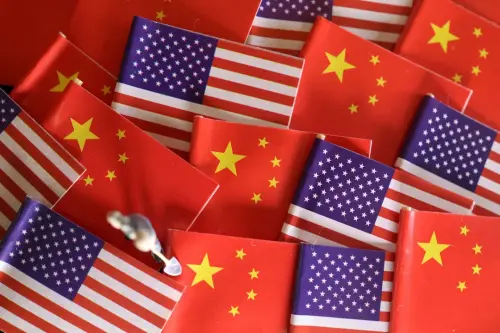President Trump’s tariffs and policies have led financiers and officials in Asia to anticipate a transformation of the post-World War II economic order, triggering an urgent drive to reduce reliance on the United States. However, this transition is proving complex.
After World War II, a global order emerged based on multilateral institutions like the United Nations and the World Bank, with the United States as the dominant power and the dollar as the world’s reserve currency. The Trump administration appears to be diverging from this established order, adopting foreign and economic policies that challenge U.S. allies, undermine certain multilateral institutions, and implement tariffs.
Interviews conducted this month with over a dozen senior bankers, investors, and officials in Asia reveal that they are proactively seeking an “America plus 1” strategy to lessen their dependency on the U.S. market. The urgency of this exploration is more pronounced than it was last May, though no clear alternatives have emerged. Many acknowledge that a viable substitute for the U.S. market may not appear in the near future.
"We are in a one in 100-year transition," noted Ben Hung, President, International at Standard Chartered, who believes the world is shifting towards a multipolar structure dominated by the U.S., China, and India. "The post-World War II order has changed."
Citi reported receiving record inquiries from Asian clients seeking guidance on navigating rising geopolitical uncertainties. The bank indicated that business in areas such as foreign exchange and hedging is growing at double-digit rates across many emerging trade corridors, including those connecting Asia with the Middle East and Latin America, although investments in the United States are also on the rise.
In response to these perspectives, a White House spokesperson highlighted U.S. investment commitments from companies like Taiwanese chipmakers and Dubai property developers, asserting they have aligned with President Trump’s America First agenda, which includes tariffs and deregulation.
These discussions emphasize how Trump's America First approach could accelerate changes already underway due to China's emergence as the world’s second-largest economy, potentially undermining efforts to counter its influence.
The White House’s unprecedented policy shifts, particularly in various domains, have prompted questions about the U.S. rule of law among foreign investors. Concerns are growing regarding economic sanctions, prompting many to seek alternatives to U.S. assets and the dollar.
A Chinese official remarked that Trump’s tariffs on U.S. allies, such as Canada and Europe, have afforded Beijing new opportunities. Trump's inability to isolate China because "his allies are also facing tariffs" presents a challenge.
Chinese companies are compelled to diversify, reducing their exposure to the United States and strengthening ties with regions including Southeast Asia, the Middle East, and Latin America.
Yet, despite this search for alternatives, U.S. assets continue to attract interest. The appeal lies in the sheer size of the American economy, the depth of its capital markets, and the relative strength of its institutions compared to authoritarian governments elsewhere.
Options for an alternative to the dollar are limited. Investors outside the U.S. sphere of influence might consider gold, cryptocurrencies, or the yuan; however, none of these serve as a perfect substitute, as noted by Hung from Standard Chartered.
Companies aiming to use the yuan for transactions would require instruments to hedge that exposure. Hung highlighted the Hong Kong Exchange’s Swap Connect as a key tool for managing interest rate risks associated with renminbi interest rate swaps. Swap Connect experienced significant growth, reaching an average daily turnover of 14.9 billion yuan last year, compared to 3 billion yuan at its launch in May 2023, although hedging solutions for yuan exposure remain marginal.
Meanwhile, the consequences of this fracturing global landscape are becoming increasingly apparent. These developments were underscored by the surprising market impact of the Chinese AI startup DeepSeek in January.
While the precise effects of DeepSeek on the market were unpredictable, it was noted that investors engaged in China’s AI sector would likely have been aware of the startup. One Asia-based investor mentioned having met its founder late last year and observed decreased competition from U.S. private equity and venture capital in recent years.
Bonnie Chan, CEO of the Hong Kong bourse operator, suggested that Western investors are wary of investing in China after difficult years for exits. “This new wave of companies like DeepSeek hasn’t attracted the same level of interest from venture capital and private equity as earlier cohorts,” Chan remarked. “And I anticipate that DeepSeek is just one of many instances that will surprise global investors.”
"There will be more jaw-dropping moments," Chan added.
